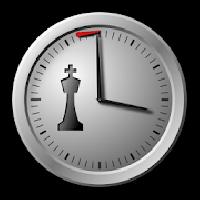General Tips & Strategies
   
     Chess is a complex game that requires a lot of strategy and skill. Here are some general tips and strategies to help you improve your game:
   
   
     - Know the fundamentals. Learn the basics of chess, such as the pieces and how they move, how to checkmate, and the different types of openings. The more you know about the game, the better you'll be.
     - Think ahead. It's important to plan several moves ahead, so you can anticipate your opponent's moves and counter them.
     - Know when to attack and when to defend. Sometimes it's best to launch an offensive, while other times it's best to focus on defense and wait for the right moment to attack.
     - Control the center of the board. The center of the board is the most important area, and controlling it can give you an advantage.
     - Develop your pieces. Get your pieces into the game and move them to better positions so they can be more effective.
     - Be patient. Don't rush your moves and take your time to think and plan. Chess is a game of patience and strategy, not speed.
   
   Opening Strategies
   
     The opening of a chess game is the most important part. Here are some tips to help you develop an effective opening strategy:
   
   
     - Know the different types of openings. There are several common openings, such as the Sicilian Defense, the French Defense, and the Ruy Lopez. Learn the basics of each of these openings and how they work.
     - Understand the purpose of each opening. Each opening has a different purpose, such as controlling the center of the board or attacking the opponent's pieces.
     - Choose an opening that fits your playing style. Some openings are more aggressive, while others are more defensive. Find an opening that fits with your playing style and strategy.
     - Be prepared to adapt. Your opponent may surprise you with an unexpected move, so be prepared to adapt and adjust your strategy accordingly.
   
   Endgame Strategies
   
     The endgame is the final stage of the game and can be the most challenging. Here are some tips to help you develop an effective endgame strategy:
   
   
     - Keep your pieces active. Make sure your pieces are well coordinated and working together to create a stronger position.
     - Focus on gaining control of the board. Your goal is to control more of the board than your opponent, so focus on that.
     - Look for checkmate opportunities. Look for ways to checkmate your opponent, such as pinning their pieces or trapping their king.
     - Know when to exchange pieces. Exchanging pieces can help you gain control of the board, so know when it's the right time to do so.
     - Be prepared to sacrifice. Sometimes it's necessary to sacrifice one of your pieces to gain an advantage.
    |






















